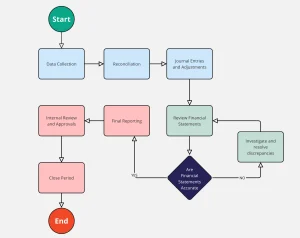
Financial planning for families is vitally important to save, meet short- and long-term goals, and stretch every dollar further. An organized plan helps young couples and their families manage expenses more easily while setting the course for a prosperous future.
One key step to ensure financial security for families during an economic downturn or unexpected expense is building an emergency savings account, so they don’t resort to high-interest debt or drain their retirement savings accounts in times of hardship.
Budgeting
Establishing a budget is one of the cornerstones of family financial planning. By understanding where your money goes every month and setting savings and debt repayment goals, a budget provides clarity about where money should be going each month.
Assemble all monthly after-tax income for everyone involved, including payroll deductions such as health insurance premiums and 401(k) contributions, before listing out expenses – from necessities and wants to savings accounts – so as to establish a baseline of how you are spending.
Label each purchase as “essential” or “not essential.” This should help you quickly see where there might be ways you could cut back, like decreasing heating bills by using less energy or eliminating Friday night takeout dinners. Furthermore, having a plan in place allows you to set a timeline for paying off debts like credit cards or mortgage loans more effectively – consider refinancing any outstanding loans at lower interest rates to speed up debt payoff.
Debt Repayment
Financial planning is an integral component of family life. It encompasses budgeting, goal setting, debt management and insurance coverage – as well as wealth transfer between generations.
Debt repayment should be an integral component of every family’s financial plan, from student and mortgage loans to using credit cards strategically to manage debt. In addition, it’s wise to set aside an emergency fund in case unexpected expenses arise.
Saving for short- and long-term goals should be part of any family’s financial plan, and automatic transfers are an ideal way to keep these goals at the forefront of one’s mind and help turn saving into a routine habit. In addition, certain accounts offer higher annual yields than others so it pays to shop around – family financial planners can offer guidance here as well as investment strategies tailored specifically to individual family members based on needs and risk tolerance levels.
Savings
Holding open and honest discussions about family finances with both your partner (and children, if old enough) can keep everyone on the same page and teach invaluable money management skills for future use.
Savings are integral for families to manage expenses and meet financial goals. Setting a budget is the first step toward savings; many online and smartphone apps exist that can assist in this regard. There are also simple strategies available like installing programmable thermostats that reduce temperature when you’re away or switching off lights when not necessary – these all can save money quickly!
Debt repayment and college planning are critical components of family financial planning. Consolidation or refinancing mortgages or student loans to reduce interest payments may free up more funds for savings; emergency funds and life, health, and property insurance policies should also be considered to protect your family from possible misfortune.
Insurance
Establishing adequate insurance protection is an integral component of family financial planning, as it serves as a safeguard against unanticipated events while helping families achieve long-term goals. Products like life, health and disability coverage allow households to save steadily over time.
Financial planning encompasses budgeting, goal setting, debt management, college planning, retirement planning, insurance coverage and estate planning. Financial advisors can assist their clients in creating an all-encompassing plan that covers both short and long-term goals.
Families can reap many advantages from financial planning, including building an emergency savings fund, lowering debt burdens, and saving for major milestones without straining finances. Tata AIA savings plans offer guaranteed income with insurance cover to assist families in creating emergency savings corpus; additionally they should take out term life policies to cover unexpected expenses in case anything arises; discuss trust strategies as an asset protection measure to minimize taxes or protect assets against unexpected events if applicable;




